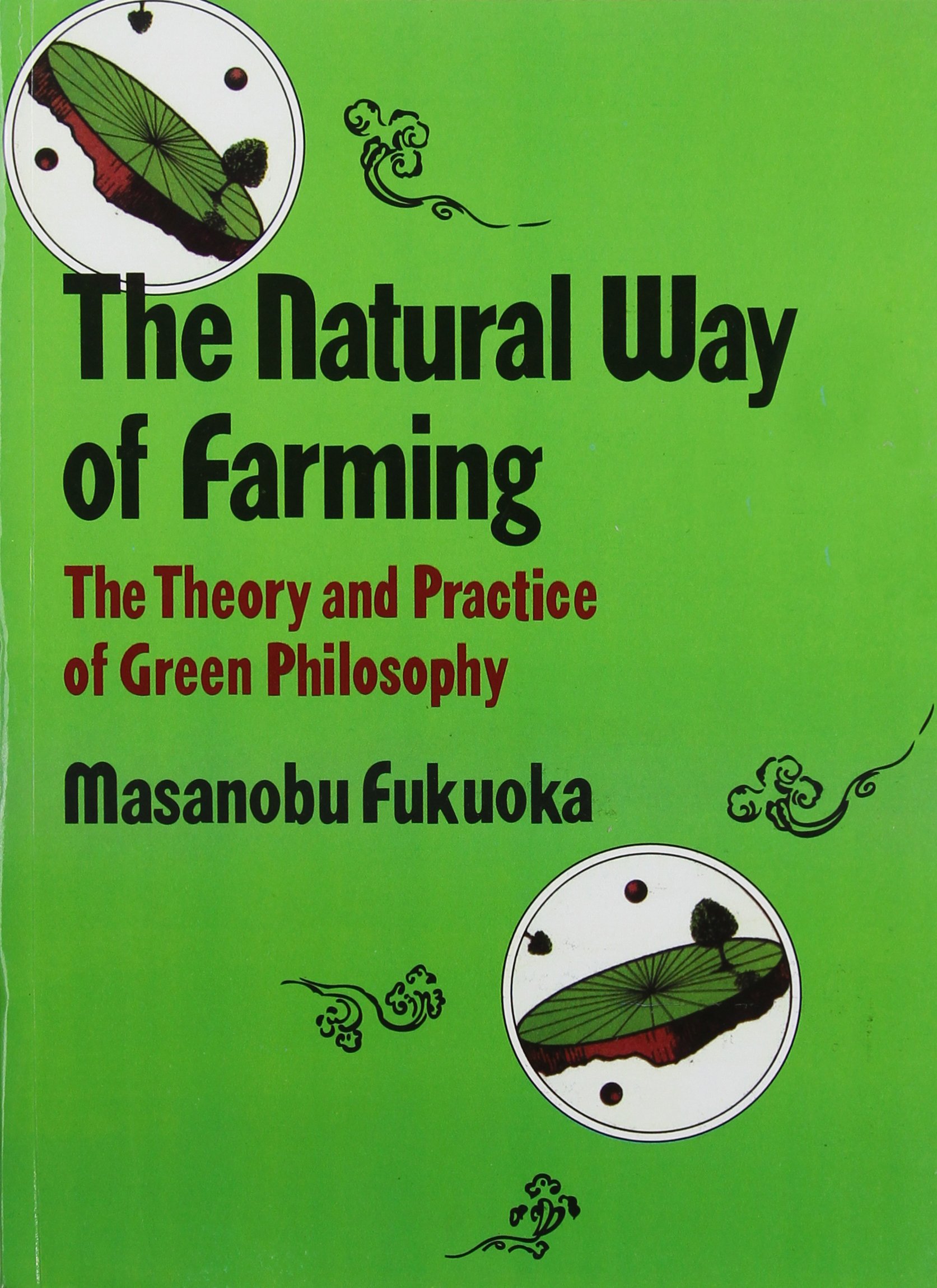Paperback, 274 pages
en-Latn language
Published Jan. 1, 1993 by Bookventure.
The Theory and Practice of Green Philosophy

Paperback, 274 pages
en-Latn language
Published Jan. 1, 1993 by Bookventure.
Japan’s most amazing natural farmer, the author of the classic One Straw Revolution returns with an in‐depth look at his unique method of “do‐nothing” farming.
Masanobu Fukuoka is a rare individual to have devoted over fifty years to farming as a spiritual path. Even rarer in this age of fragmented specialization is his grasp on the interrelatednes of all aspects of human society and nature. Acclaimed as a “modern‐day Lao Tzu” by fellow Japanese for his paradoxical wisdom, he reaches back to the source of agrarian traditions to emerge at the vanguard of post‐industrial civilization. He stands on the direct realization that culture is agriculture, and overturns preconceptions and rational reductions of the world to show us the roots of a healthy and whole way of life — and the proof is in his farming!
Imagine raising crops with no cultivation, no chemical fertilizers or herbicides, not even any added …
Japan’s most amazing natural farmer, the author of the classic One Straw Revolution returns with an in‐depth look at his unique method of “do‐nothing” farming.
Masanobu Fukuoka is a rare individual to have devoted over fifty years to farming as a spiritual path. Even rarer in this age of fragmented specialization is his grasp on the interrelatednes of all aspects of human society and nature. Acclaimed as a “modern‐day Lao Tzu” by fellow Japanese for his paradoxical wisdom, he reaches back to the source of agrarian traditions to emerge at the vanguard of post‐industrial civilization. He stands on the direct realization that culture is agriculture, and overturns preconceptions and rational reductions of the world to show us the roots of a healthy and whole way of life — and the proof is in his farming!
Imagine raising crops with no cultivation, no chemical fertilizers or herbicides, not even any added compost! Fukuoka has learned not to ask the impossible of nature, and is blessed with impossibly high yields. Instead of continually attempting to do a little bit more, he has looked for ways to do less, to leave off unnecessary labors, and yet his soil grows richer every year. He has pared his costs, equipment, and techniques down to an absolute minimum, rejecting the race to keep up with runaway relative economics for a saner, more balanced natural cycle. He offers us a provocative image of stewardship to the earth as the cornerstone to a society of sufficiency, permanence, and self‐renewal.
Here in one volume are the secrets of Fukuoka’s approach to farming the natural way; the theory and practice of working with nature, and living better for it. At once philosophical and down‐to‐earth, he takes us on a walk through health fields, and clearly explains how we can and must change our way of doing things if we are to make lasting peace with the earth and ourselves.
Photographs, diagrams, and tables provide abundant practical reference for gardeners and farmers, while the lucid text will open the eyes of the most general reader. Detailed coverage of actual methods instructs competently without becoming overly technical. This is a highly accessible book with far‐reaching implications and applications for all.